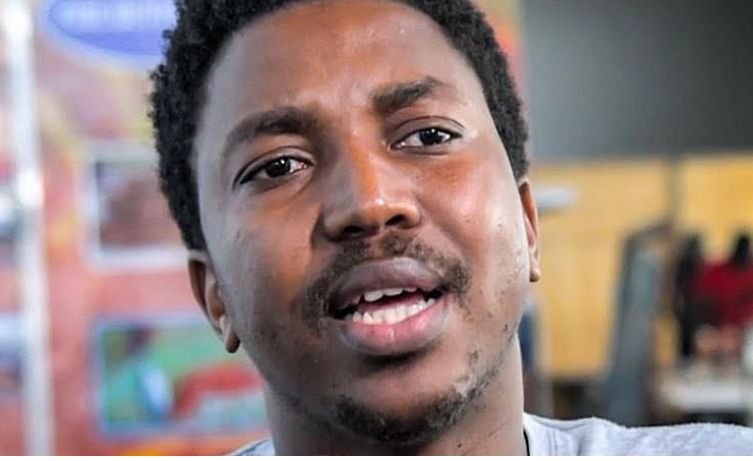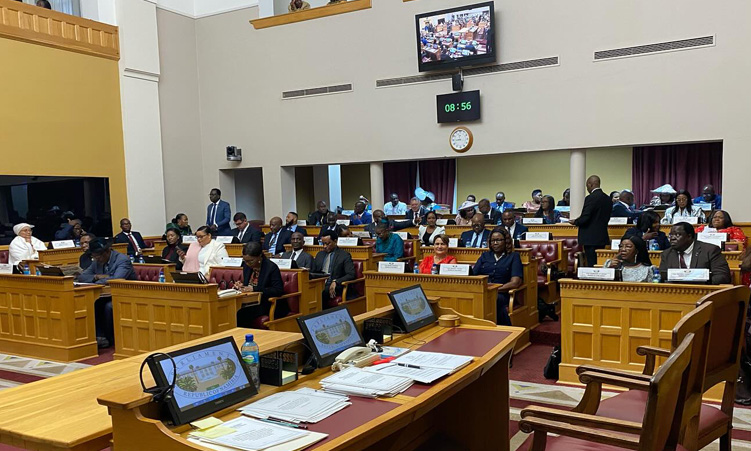THOUGHTFUL and praxis-oriented discussion is the hallmark of a democratic culture. It’s to be supported. Since the publication of my ‘Democratisation and Demilitarisation’ article, (The Namibian April 17, 2009) a few SMSes and one lengthy critique on my piece, by Col.
Hafeni Hamunyela, have appeared in the newspapers. I welcome the opportunity to engage briefly with some of Hamunyela’s concerns which he believes refute parts of my article.I’m sure as a military person he has a different take on the issues I raised. The point is that the military is an important institution not only because it has a monopoly over the means of violence and thus a force for either good or bad as contemporary history reminds us. The military can also command a large amount of the nation’s material resources to supply salaries, new equipment and other facilities for an ever-rising number of army personnel. It therefore inspires several reactions from different people.The crux of my argument, then, was that the Namibian army has become costly (a black hole) as the successive budget allocations by Government clearly demonstrate. Proceeding from that concern, I humbly suggested that we should abolish the army and instead concentrate on the development of a well-trained, well equipped and well paid police force and a coastguard.My main concern and fear as Namibian is internal insecurity – crime, theft, corruption – by fellow Namibians, not a military attack from our neighbours or from a lone terrorist. I also argued from a Kantian perspective that democracies rarely or never go to war with one another – the democratic peace thesis. And since Namibia is part of the SACU and SADC family which are said to be democratic, except that short-sighted addition to SADC of the DRC, there is no imminent danger of war.Hamunyela misunderstood me on this score because I didn’t say that a democratic country cannot go to war with a non-democratic one. The manner in which Botswana and Namibia resolved the Kasikili dispute or Namibia and SA the Orange River border issue are good examples of how democratic countries should behave. So issues of national interest itself and individualistic/capitalist notion, can also be resolved peacefully contrary to Hamunyela’s explanation why nations go to war. He is right in saying that the former Warsaw Pact or NATO members never went to war against each other. Now if Namibia is part of the SADC Mutual Defence Pact, where is the war going to come from? Arguing that the NDF only adopts a defensive posture is to beg the question: Against whom? Perhaps against terrorist attacks? One or two terrorists are enough to cause extensive damage – blow up a plane, a bridge or even state house. For this one doesn’t need a large army with warplanes and tanks as the September 11 attacks in the USA clearly demonstrated. A robust intelligence work and the police are better placed to do that. Hamunyela also refers to cases of Vietnam, Cuba and Israel and how these countries have prevailed over their enemies at different points in time as an example of what smaller countries could do. But then he forgets to mention that the intervention of Angola, Namibia and Zimbabwe in the DRC war in the late 1990s failed completely against a rag-tag Congolese Rebels and their Rwandese backers. The man they went to support, Laurent Kabila, was assassinated under their very noses. Thus besides the NDF adventure in the DRC war and briefly its involvement with the Angola one, this country has not been at war with another country since Independence.Now, as a layman, I would like to know what the NDF does with the weapons they buy every year. And what precisely does it do in peace time? It still puzzles me how a Ministry can ‘lose’ millions of dollars to a bogus arms dealer. This is part of the lack of capacity I was talking about. As it is now, African armies are nothing but big dumping grounds for weapons from arms manufacturing countries and thus a drain on national assets and a major contributor to underdevelopment. Thus arguing from our own peculiar situation as defined by our regional context; I still argue for the abolition of the military and recommend instead to use the billions of dollars to fight the real enemies – underdevelopment, unemployment and poverty.
Stay informed with The Namibian – your source for credible journalism. Get in-depth reporting and opinions for
only N$85 a month. Invest in journalism, invest in democracy –
Subscribe Now!










